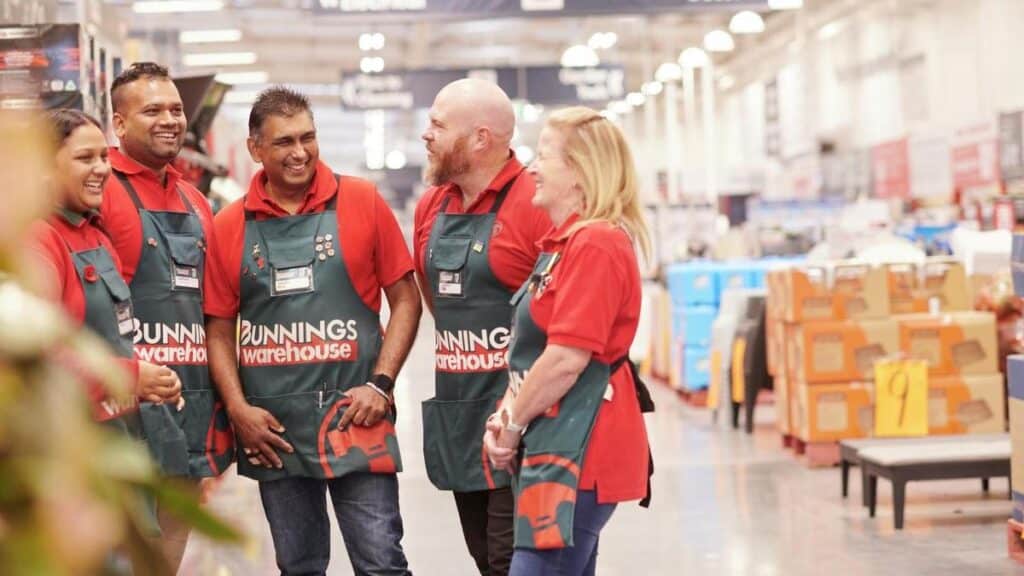Bunnings will stop selling engineered stone in stores at the end of this year, with Australia’s largest hardware and home improvement store responding to health concerns around silicious, described as “the new asbestos.”
It comes after a report published by Safe Work Australia recommended that the product be banned immediately as part of a complete overhaul of engineered stone products sold nationwide.
The report recommended “a complete prohibition on the use of engineered stone.”
Bunnings Merchandise Director Jen Tucker confirmed the move, stating that “while there has been clear indication from NSW and other state governments that they will legislate a ban on the product, we are proactively making this decision to allow suppliers and customers time to prepare for a transition.”
Wood Central understands that Bunnings is the country’s leading supplier of engineered stone benchtops, with the decision having significant implications for the building and construction industry.

Last month, hundreds of Construction, Forestry, Maritime, Mining and Energy Union (CFMEU) members protested outside Bunnings stores, urging them to stop selling the product and look to safer alternatives, including low-quartz products, natural stone, stainless steel or wood-based laminate.
The union members stood outside Bunnings stores, waving placards and handing out pamphlets as part of its Stop This Killer Stone campaign – a campaign pushing to ban production, importation and use of the material by July next year.
Earlier this month, the peak body for Australian Unions, the ACTU, pledged to block block-engineered stone products from appearing on construction sites unless the federal and state governments pushed for a total ban.
However, Ms Tucker acknowledged that “the vast majority of benchtops we sell in our stores are laminate and timber, but we’re already well progressed with sourcing other alternative products, and we’re working closely with our suppliers and customers to support them through the change.”
Discussions have been ramping up over a potential blanket ban on the use of all engineered stone over its links to the deadly lung disease.
Federal, state and territory workplace ministers met last month to review a report from SafeWork Australia, which recommended banning the product, irrespective of crystalline silica content.
Inhaling the dust when the product is cut to size causes inflammation, which, over time, leads to scarring of the lung tissue, making it difficult to breathe.
Bunnings noted it doesn’t sell the benchtops to DIY or trade customers to install or cut themselves.
Another meeting is expected before the end of the year to decide on a ban.
Construction, Forestry, Maritime, Mining and Energy Union (CFMEU) national secretary Zach Smith said it was “the end of the line for engineered stone”.
“When even a massive corporation that until now has put profits over workers’ lives concedes it’s lost any remaining social licence to sell this killer stone, no government can squib it on a ban,” Smith said.
What are the alternatives to engineered stone?
Speaking to ABC Radio Sydney Breakfast in February, Michael Ferry – kitchen manufacturer and designer – said timber, laminate, bamboo and polisher concrete are viable alternatives to engineered stone.
According to Archipro, timber and even bamboo “is a classic choice for kitchen benchtops, as it gives natural warmth and character,” but it must be coated before us and have oil reapplied.
By contrast, laminate has some significant advantages, and “among kitchen benchtop materials, laminate offers one of the widest ranges of colours and patterns.”
It is also quite resistant to staining and easy to keep clean but susceptible to scorching and scratching.
“As long as the user is vigilant when cutting or using hot pots/pans, this shouldn’t be a major issue.”
Laminate benchtops are made by squeezing the layer of toughened plastic, an ornamental paper sheet and a block of engineered wood like moisture-tolerant particleboard or medium-density fibreboard.






